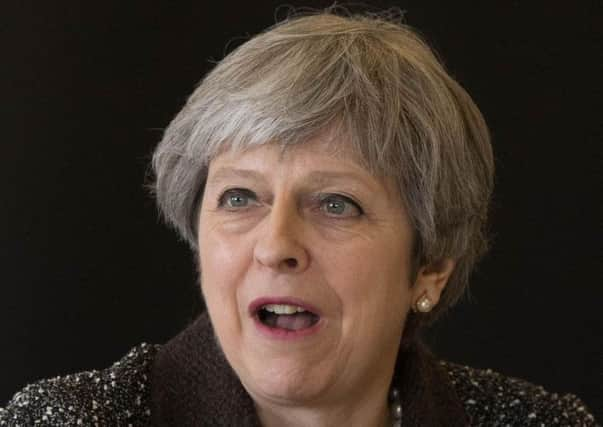Europe and Brexit could still split the Conservative party


She not only managed to escape the Conservative party conference still leader, but was widely praised for her speech. She put down her former foreign secretary, Boris Johnson, and gave people some confidence she would negotiate an acceptable deal to leave the EU on terms that retain access to the EU-27 market.
This is just one step on what remains a difficult political journey. The issue of Europe and Brexit could yet split the Conservative party. This happened over the Corn Laws back in the 1870s, and the party was then out of government for years. That is an unlikely outcome now, because with Momentum seeking to deselect moderate MPs the Labour party is as close to splitting as the Tories. This is all far beyond the pay grade of a mere agricultural columnist. However farming, particularly in Northern Ireland, is one of the sectors most exposed to a bad Brexit deal. This issue is not about whether Brexit should or not happen. That has already been decided – the focus for farmers now needs to be on a deal that will cause minimal damage to agriculture.
Advertisement
Advertisement
When the former foreign secretary was tub thumping at the Conservative party conference much was said about the merits of what has been described as a Canada plus trade deal. This is one of the options on the table, so it pays to know more about what the options are. Then when we end up with one, or a hard no deal Brexit, we will understand what has been won or lost.
The simple trade option is what we have now – a customs union. This allows free trade between 28 member states. Its basis is that regardless of where and how something is produced a common rule book means it can be sold anywhere in the EU. The customs union is also our defence against low cost, poor quality food imports. This was a UK idea, and it was one of the big successes of Margaret Thatcher’s time as prime minister. Today’s Tory party however sees the policy as one that cannot work, because it would limit scope to do trade deals beyond the EU 27.
The government has made clear it is leaving the customs union of the single market, although that does not mean it cannot come up with an alternative, looser arrangement.
One of these is effectively waiting in the wings, in the shape of membership of the European Economic Area (EEA). This has been ruled out by the government, but there have been hints that it might be back on the agenda. This ticks a lot of boxes. It would allow a single market in goods, including food, without the UK having to be in the CAP or the Common Fisheries Policy. This would retain the maximum possible amount of the status quo. There is however a big but, in that it is based around free movement of people, which the government has ruled out. In addition the UK would have to pay to access the single market. This works well for the non-EU countries in the EEA – Iceland, Norway and Lichtenstein - but it remains a doubtful prospect for the UK.
Advertisement
Advertisement
Switzerland is not a member of the EEA but has its own single market deal with the EU.
Then there is Canada plus which Tory Brexiteers see as the perfect solution. This would be based on the free trade deal the EU has with Canada, known officially as the Comprehensive Economic and Trade Agreement (CETA). This allows reduced or no tariff trade between the EU and Canada. This is complex, with tariff decisions taken on a commodity by commodity basis and it took seven years to agree. This is far removed from a single market or even universal free trade, but it leaves both parties free to do their own thing with other countries.
The CETA deal is a model that expands limited trade between two trading blocs. Tariffs remain part of the equation and there is limited acceptance of common standards. In a UK/EU context it would not reduce customs checks nor avoid a hard border in Ireland. On that basis it might not deliver the solution farmers need to maintain access to the EU 27.